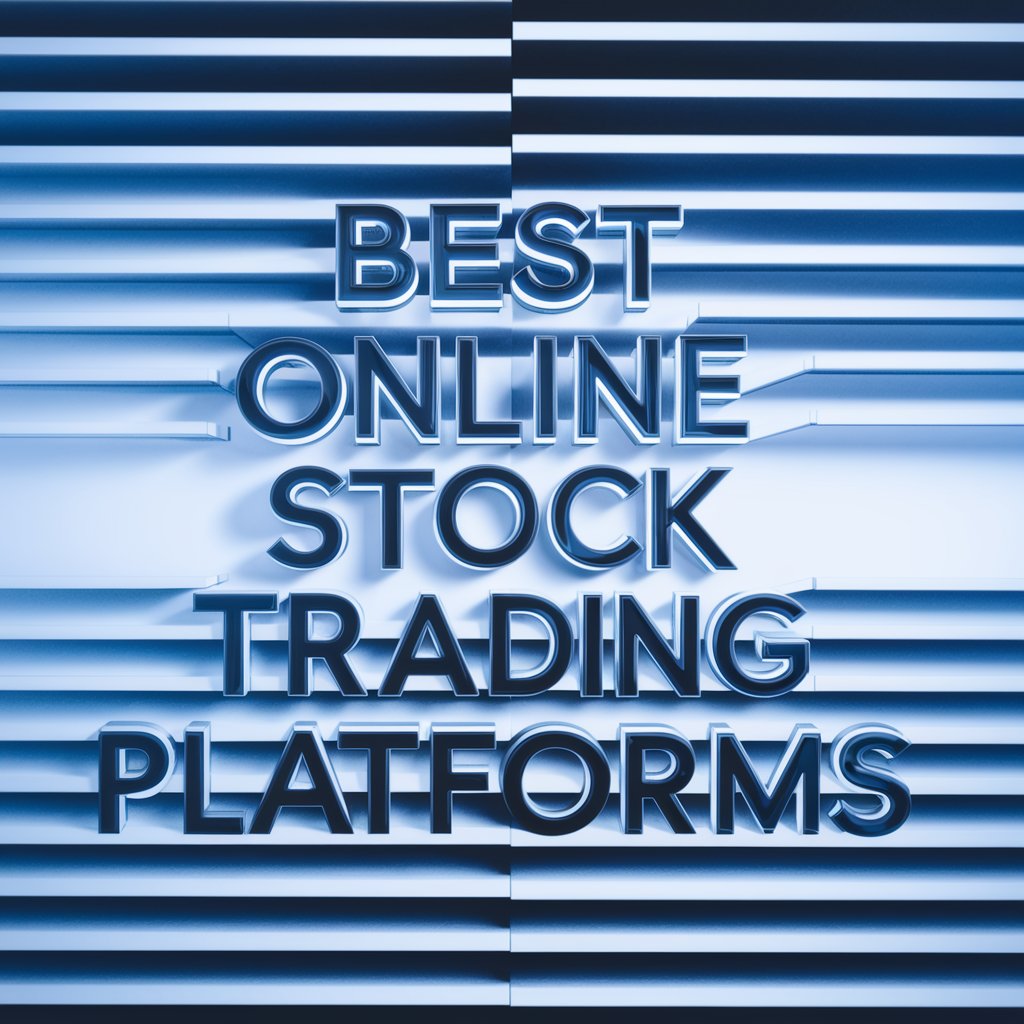Online stock trading platforms have become essential tools for both individual investors and professionals in today’s digital finance world, revolutionizing the stock market landscape. These platforms provide easy access to financial markets and a wide range of tools to help make informed investment decisions. As the popularity of online trading grows, selecting the right platform becomes increasingly crucial. The right platform can significantly impact your trading success, with factors such as user needs, fees, accessibility, and available trading tools playing a critical role. In this guide, we’ll explore the best online stock trading platforms and how to choose the one that fits your trading needs.
Overview of Trading Platforms
Online stock trading platforms are digital interfaces that allow users to buy and sell stocks and other financial assets. They have transformed the way individuals and professionals trade by providing tools that were once only accessible to institutional investors. These platforms offer real-time access to financial markets, enabling users to make informed decisions and execute trades swiftly.
The evolution of trading platforms has democratized access to the financial markets, empowering individual investors to manage their portfolios without relying on brokers. With a wide range of platforms available, traders can choose one that best suits their needs, whether they’re looking for basic trading capabilities or advanced analytical tools.
Key Features of Top Trading Platforms
Top trading platforms offer a variety of features that cater to the needs of both novice and experienced traders. Here are some key features to look for:
- Real-time Quotes: Access to real-time market data is crucial for making informed trading decisions. The best platforms provide live quotes and streaming data to help traders stay updated on market movements.
- Charting Tools: Advanced charting tools allow traders to analyze market trends and identify potential trading opportunities. Look for platforms that offer customizable charts, technical indicators, and drawing tools.
- Educational Resources: Educational materials, such as webinars, tutorials, and articles, can help traders improve their skills and knowledge. Many top platforms offer comprehensive learning resources for beginners and experienced traders alike.
- Automated Trading Options: Some platforms offer automated trading features, allowing users to execute trades based on predefined criteria. This can be particularly useful for experienced traders who want to implement complex strategies.
- User-friendly Interface: A user-friendly interface is essential for a seamless trading experience. The best platforms are intuitive and easy to navigate, allowing users to focus on trading rather than navigating complex menus.
Comparison of Stock Trading Platforms
When comparing stock trading platforms, it’s important to consider their unique features, usability, and fee structures. Here’s a look at three major platforms: E*TRADE, TD Ameritrade, and Robinhood.
E*TRADE
ETRADE is known for its comprehensive trading tools and research resources. It offers a wide range of investment options, including stocks, options, futures, and mutual funds. ETRADE’s platform is user-friendly and provides access to advanced charting tools and real-time market data. While its fees are slightly higher than some competitors, the platform’s extensive resources make it a great choice for serious traders.
TD Ameritrade
TD Ameritrade is another popular choice among traders, offering a robust trading platform with advanced features. Its flagship platform, thinkorswim, provides professional-grade tools, including advanced charting, technical analysis, and customizable screeners. TD Ameritrade also offers a vast library of educational content, making it an excellent option for beginners. The platform charges no commission on online stock and ETF trades, but options trading carries a fee.
Robinhood
Robinhood has gained popularity for its commission-free trading model and user-friendly mobile app. The platform is designed for simplicity, making it an attractive choice for new investors. However, Robinhood’s features are more limited compared to other platforms, with fewer research tools and educational resources. It’s best suited for casual traders who prioritize low costs and ease of use.
Forex Trading Platforms
Forex trading platforms cater to currency traders, offering specialized tools and features to navigate the foreign exchange market. Key features to look for in a forex trading platform include:
- Leverage Options: Forex trading often involves leverage, allowing traders to control larger positions with a smaller amount of capital. Platforms should offer flexible leverage options to suit different trading styles.
- Spread Rates: The spread is the difference between the bid and ask price, and it’s a key factor in forex trading. Look for platforms with competitive spread rates to minimize trading costs.
- International Access: Forex trading is a global market, so it’s important to choose a platform that provides access to a wide range of currency pairs and international markets.
Popular forex trading platforms include MetaTrader 4, MetaTrader 5, and cTrader. These platforms offer advanced charting tools, algorithmic trading capabilities, and access to a wide range of currency pairs.
How to Choose the Right Platform
Selecting the right trading platform depends on several factors, including your trading style, market access, fee sensitivity, platform tools, and customer support. Here are some guidelines to help you choose:
- Trading Style: Consider whether you’re a day trader, swing trader, or long-term investor. Different platforms cater to different trading styles, so choose one that aligns with your approach.
- Market Access: Ensure the platform provides access to the markets you wish to trade, whether it’s stocks, options, forex, or cryptocurrencies.
- Fee Sensitivity: Compare the fee structures of different platforms, including commissions, spreads, and account maintenance fees. Opt for a platform that fits your budget and trading frequency.
- Platform Tools: Evaluate the tools and features offered by the platform, such as charting capabilities, research resources, and automated trading options.
- Customer Support: Reliable customer support is crucial, especially for beginners. Choose a platform with responsive support to assist you with any issues or questions.
Future Trends in Trading Platforms
The future of online trading platforms is shaped by technological advancements and evolving market demands. Here are some trends to watch for:
- Cryptocurrency Integration: As cryptocurrencies gain popularity, more platforms are incorporating digital assets into their offerings. Expect to see seamless integration of crypto trading alongside traditional assets.
- AI-driven Trading Assistants: Artificial intelligence is transforming the trading landscape by providing AI-driven trading assistants that offer insights, recommendations, and automated strategies.
- Enhanced Mobile Trading Experiences: With the rise of mobile trading, platforms are focusing on improving their mobile apps for a seamless trading experience on the go. Expect more intuitive interfaces and advanced features tailored for mobile users.
Master Your Trades: Choose the Perfect Platform
Choosing the right trading platform is crucial for achieving your trading objectives. With so many options available, it’s important to carefully consider your needs, test demo versions, and stay informed about evolving trading technologies. By selecting a platform that aligns with your trading style and goals, you can navigate the complex world of online trading with confidence.
To get started, consider signing up for trial periods offered by trading platforms or attending webinars and seminars to better understand their features. This hands-on approach will help you make an informed decision and set you on the path to successful trading.









